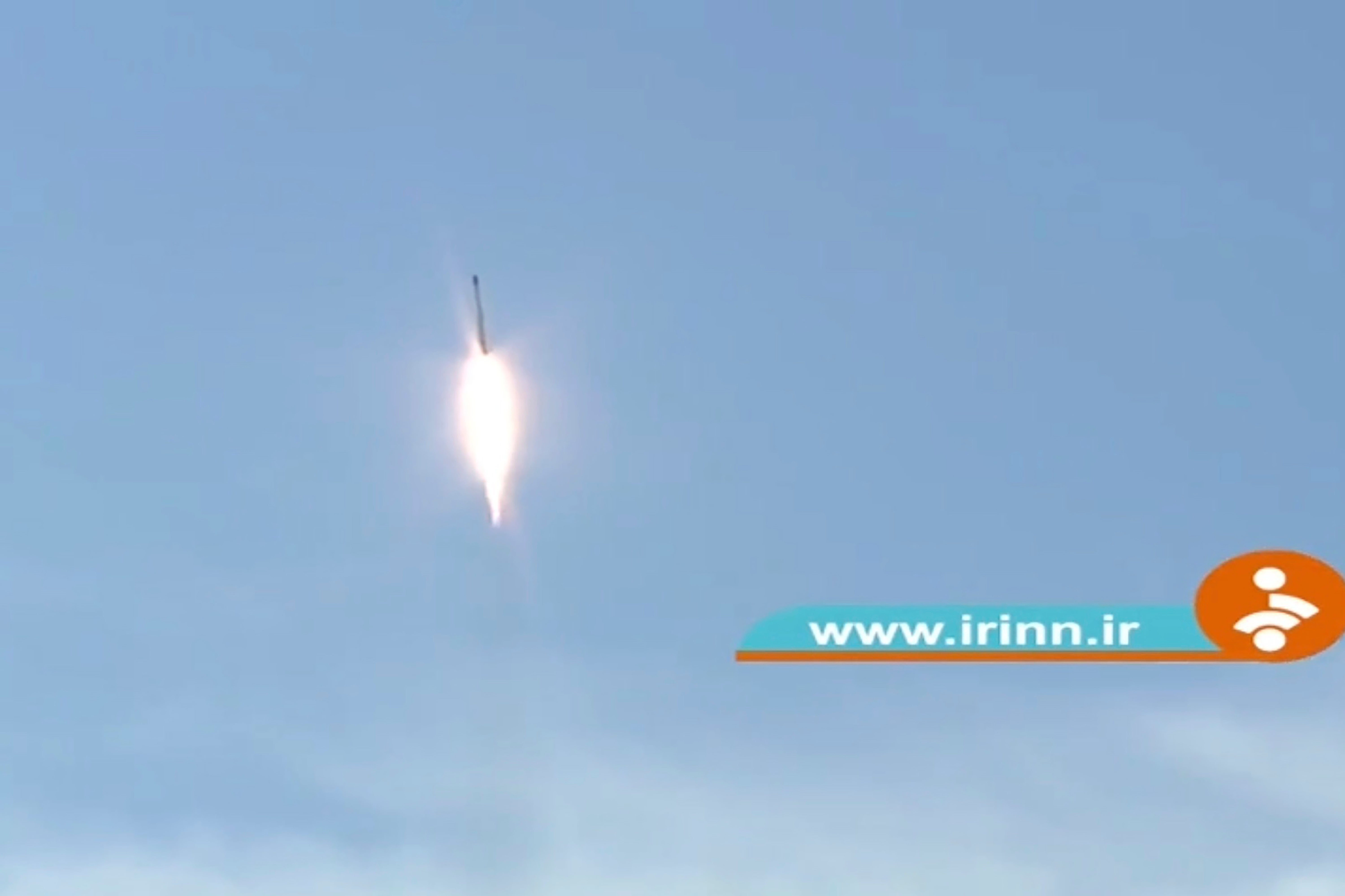Iran state TV says Tehran launched rocket into space
Iranian state television says Tehran has launched a rocket with a satellite carrier bearing three devices into space, though it’s unclear if any object entered orbit around the Earth

Iran on Thursday announced it launched a satellite carrier rocket bearing three devices into space, though it's unclear whether any of the objects entered orbit around the Earth
The state TV report, as well as others by Iran's semiofficial news agencies, did not say when the launch was conducted nor what devices the carrier brought with it. However, the launch comes amid difficult negotiations in Vienna over Iran's tattered nuclear deal.
Previous launches have drawn rebukes from the United States. The U.S. State Department, Space Force and the Pentagon did not immediately respond to requests for comment.
Ahmad Hosseini, a Defense Ministry spokesman, identified the rocket as a Simorgh, or “Phoenix,” rocket. He said the three devices were sent up 470 kilometers (290 miles).
Hosseini was quoted as saying the “performance of the space center and the performance of the satellite carrier was done properly.” He described the launch as “initial," suggesting more are on the way.
Iran's TV aired footage of the white rocket emblazoned with the words, “Simorgh satellite carrier” and the slogan “We can” shooting into the morning sky from Iran's Imam Khomeini Spaceport. A state TV reporter at a nearby desert site hailed the launch as “another achievement by Iranian scientists.”
However, officials were silent on whether the launched objects had actually reached orbit. Iran's civilian space program has suffered a series of setbacks in recent years, including fatal fires and a launchpad rocket explosion that drew the attention of former President Donald Trump
Iranian state media recently offered a list of upcoming planned satellite launches for the Islamic Republic’s civilian space program. Iran’s paramilitary Revolutionary Guard runs its own parallel program that successfully put a satellite into orbit last year.
The blast-offs have raised concerns in Washington about whether the technology used to launch satellites could advance Iran's ballistic missile development. The United States says that such satellite launches defy a United Nations Security Council resolution calling on Iran to steer clear of any activity related to ballistic missiles capable of delivering nuclear weapons.
Iran, which long has said it does not seek nuclear weapons, maintains its satellite launches and rocket tests do not have a military component.
Announcing a launch as nuclear negotiators meet in Vienna aligns with Tehran s hard-line posture under President Ebrahim Raisi a recently elected conservative cleric.
New Iranian demands in the nuclear talks have exasperated Western nations and heightened regional tensions as Tehran presses ahead with atomic advancements. Diplomats have repeatedly raised the alarm that time is running out to restore the accord, which collapsed three years ago when America unilaterally withdrew under then-President Trump.
Iran has now abandoned all limitations under the agreement, and has ramped up uranium enrichment from under 4% purity to 60% — a short, technical step from weapons-grade levels. International inspectors face challenges in monitoring Tehran's advances.
Satellite images seen by The Associated Press suggested a launch was imminent earlier this month. The images showed preparations at the spaceport in the desert plains of Iran’s rural Semnan province, some 240 kilometers (150 miles) southeast of Tehran.
Over the past decade, Iran has sent several short-lived satellites into orbit and in 2013 launched a monkey into space. But under Raisi, the government appears to have sharpened its focus on space. Iran’s Supreme Council of Space has met for the first time in 11 years.
___
DeBre reported from Dubai, United Arab Emirates. Associated Press writer Jon Gambrell in Dubai contributed to this report.
Bookmark popover
Removed from bookmarks